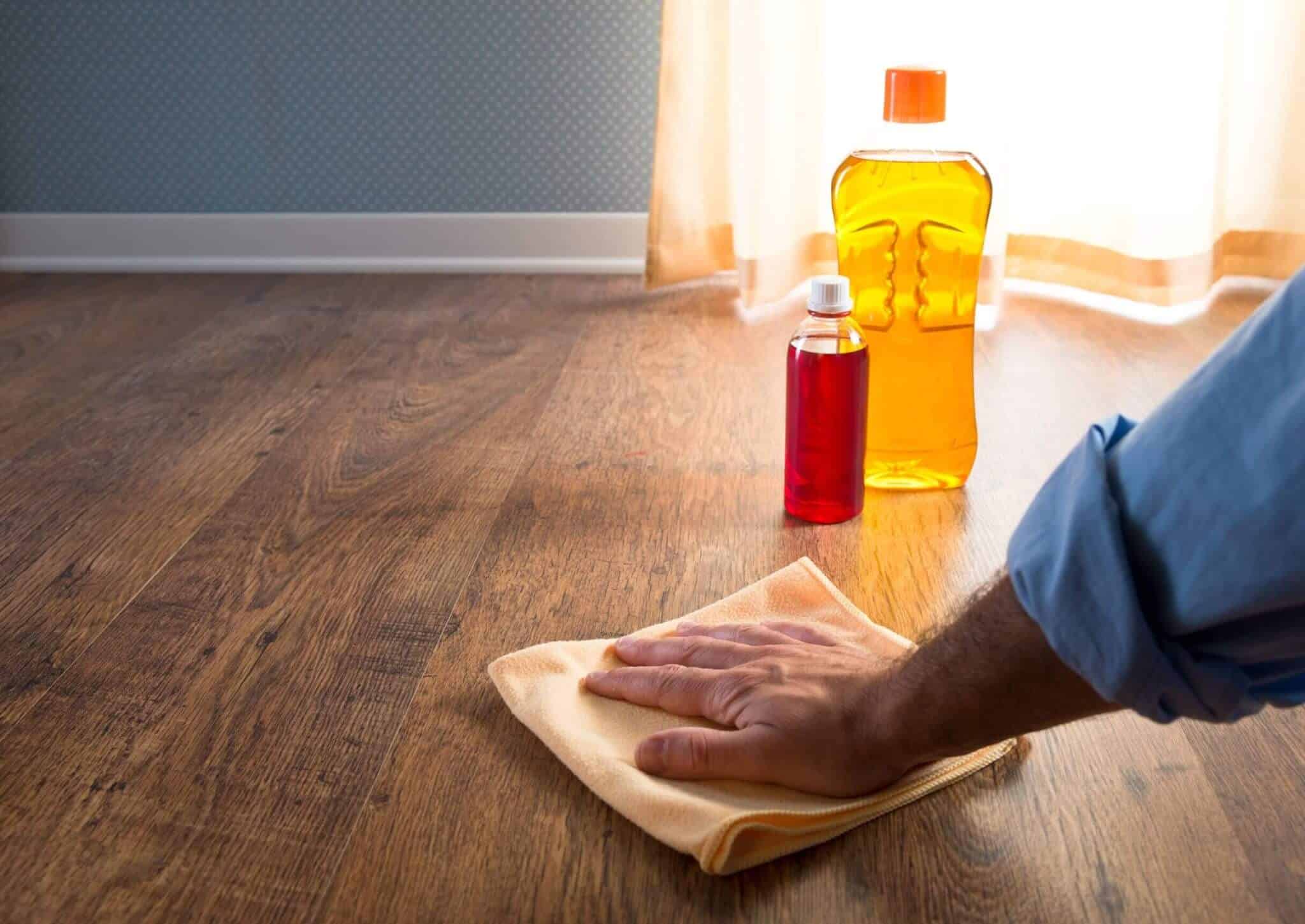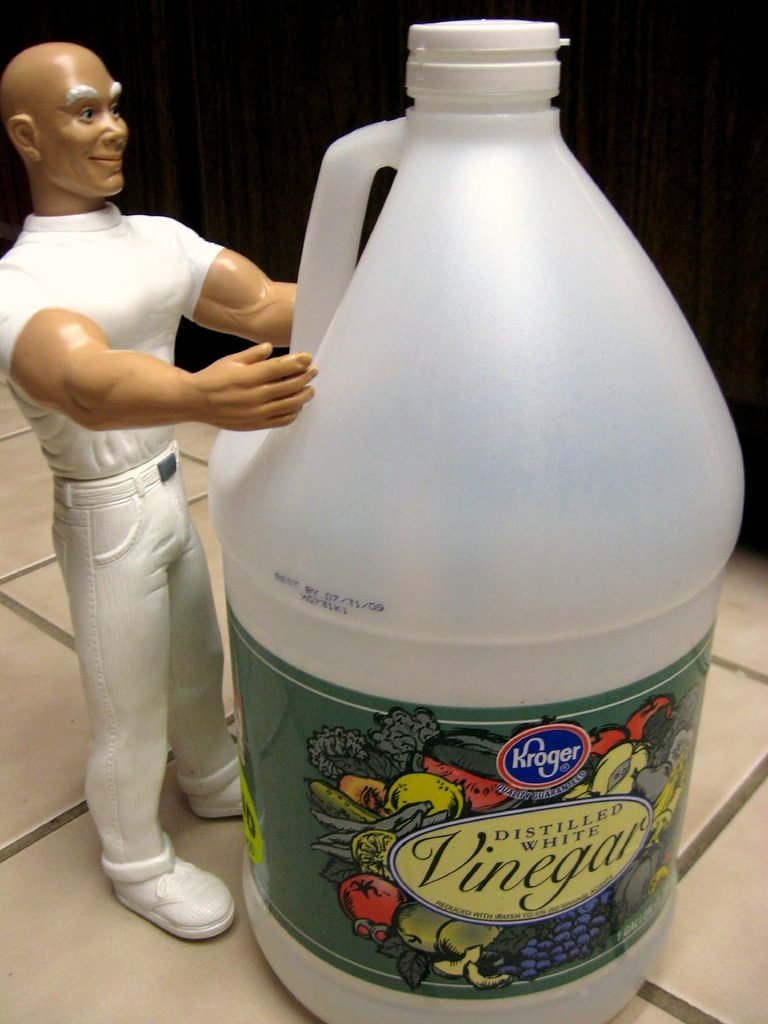My grandmother swore by vinegar for just about everything, and cleaning wood floors was no exception. While I’ve always been skeptical of old wives’ tales, I have to admit, there’s something alluring about using a natural product for cleaning. But can vinegar actually clean wood floors effectively? Is it safe for your prized hardwood? Let’s dive into the world of vinegar cleaning and find out.

Image: browngouge.com.au
This guide will equip you with the knowledge to confidently decide whether vinegar is a good option for your wood floors. We’ll explore the pros and cons of using vinegar, provide safe and effective cleaning tips, and address common FAQs. So, let’s get started on a journey to sparkling clean floors, naturally!
The Benefits of Cleaning Wood Floors with Vinegar
Vinegar is a popular natural cleaning agent that’s praised for its affordability and effectiveness in tackling dirt, grease, and grime. It’s also environmentally friendly, making it a good choice for those seeking sustainable cleaning solutions. However, when it comes to wood floors, the story isn’t always as straightforward.
One of the key advantages of using vinegar on wood floors is its ability to cut through dirt and grime. Its acidic properties help to dissolve dirt and grime, making it easier to clean. It can also disinfect the floor, killing bacteria and germs, making it a good option for families with young children or pets. Additionally, vinegar can help to remove stains, especially those caused by spills or scuffs.
Is Vinegar Safe for All Wood Floors?
While vinegar can be a good cleaning option for some wood floors, it’s not universally safe. The key thing to remember is that vinegar is acidic, and too much acidity can damage the finish of your floor. Therefore, it’s essential to be cautious when using vinegar on wood floors, especially if they have a delicate or sensitive finish.
Before you start cleaning, consult the manufacturer’s recommendations for your specific floor. If you’re not sure, it’s always best to err on the side of caution and start with a small, inconspicuous area to test the reaction.
The Risks Associated with Using Vinegar
Using too much vinegar on your wood floors can lead to several problems. Firstly, it can dull the finish of the floor. The acid in vinegar can break down the protective layer of the finish, making the wood more susceptible to scratches and wear. If you have already applied a sealant, the vinegar could potentially damage the sealant, leaving your floors vulnerable to moisture and stains.
Secondly, the vinegar can cause the wood to warp or swell. If the vinegar is left to sit on the wood for too long, it can penetrate into the wood itself and cause it to expand. This can lead to warping or buckling of the floorboards.

Image: www.homeaholic.net
Vinegar Cleaning Tips and Expert Advice
To use vinegar safely and effectively on your wood floors, follow these tips:
- Dilute the vinegar. Never use full-strength vinegar on wood floors. Always mix it with water, preferably in a ratio of 1:1 or 1:2 (vinegar to water). This helps to minimize the risk of damage to the floor.
- Test a small area first. Before using the vinegar solution on the entire floor, apply it to a small, inconspicuous area. This will allow you to see how the vinegar reacts with the wood finish and make sure it’s not causing any damage.
- Apply sparingly. When applying the vinegar solution, use only a small amount and avoid saturating the wood. Too much moisture can damage the floor, even if you’re using a diluted solution.
- Clean with a soft cloth. Use a soft cloth to clean the floor with the vinegar solution. A microfiber cloth is a good option. Avoid using abrasive cloths or sponges that could scratch the finish.
- Rinse thoroughly. Once you’ve cleaned the floor, rinse away all the vinegar solution with clean water. This helps to prevent any residue that could damage the floor or attract dirt.
- Dry completely. After rinsing, allow the floor to dry completely. This will help to prevent water damage and warping.
- Avoid using vinegar on unfinished wood floors. If you have unfinished wood floors, it’s best to avoid vinegar altogether because it can damage the wood itself.
Remember, vinegar can be a valuable tool for wood floor cleaning, but it’s crucial to use it responsibly and selectively. Combining it with the right cleaning methods and preventative measures will help preserve the natural beauty and longevity of your hardwood floors.
Frequently Asked Questions
Here are some common questions people ask about using vinegar to clean wood floors:
Q: Can I use vinegar on my sealed wood floors?
A: While vinegar might work on some sealed wood floors, it’s not recommended. The acid in vinegar can react with some sealants, causing damage and dulling the finish. Always check the manufacturer’s instructions for your specific floor sealant before using vinegar.
Q: Is vinegar good for cleaning up spills on wood floors?
A: Vinegar can be useful for cleaning up some spills on wood floors, such as those caused by water or sticky substances. However, it may not be suitable for all spills. For example, acidic spills, like those from fruit juice or coffee, could react with the vinegar and cause discoloration.
Q: How do I prevent my wood floors from getting damaged when using vinegar?
A: The best way to prevent damage is by using a diluted vinegar solution and cleaning sparingly with a soft cloth. Always test the vinegar on an inconspicuous area first, and thoroughly rinse and dry the floor after cleaning.
Q: Are there any other natural cleaning solutions for wood floors?
A: Absolutely! Other natural solutions include using a mixture of warm water and dish soap, white soap, or olive oil.
Can I Clean Wood Floors With Vinegar
Conclusion
Using vinegar to clean wood floors can be a cost-effective and natural approach, but it is crucial to be aware of the potential risks and follow proper cleaning techniques. Always test a small, inconspicuous area first, and if in doubt, consult the manufacturer’s recommendations for your specific floor.
Are you interested in learning more about natural cleaning solutions for your home? Share your thoughts and any questions you might have in the comments below!



/GettyImages-173599369-58ad68f83df78c345b829dfc.jpg?w=740&resize=740,414&ssl=1)


